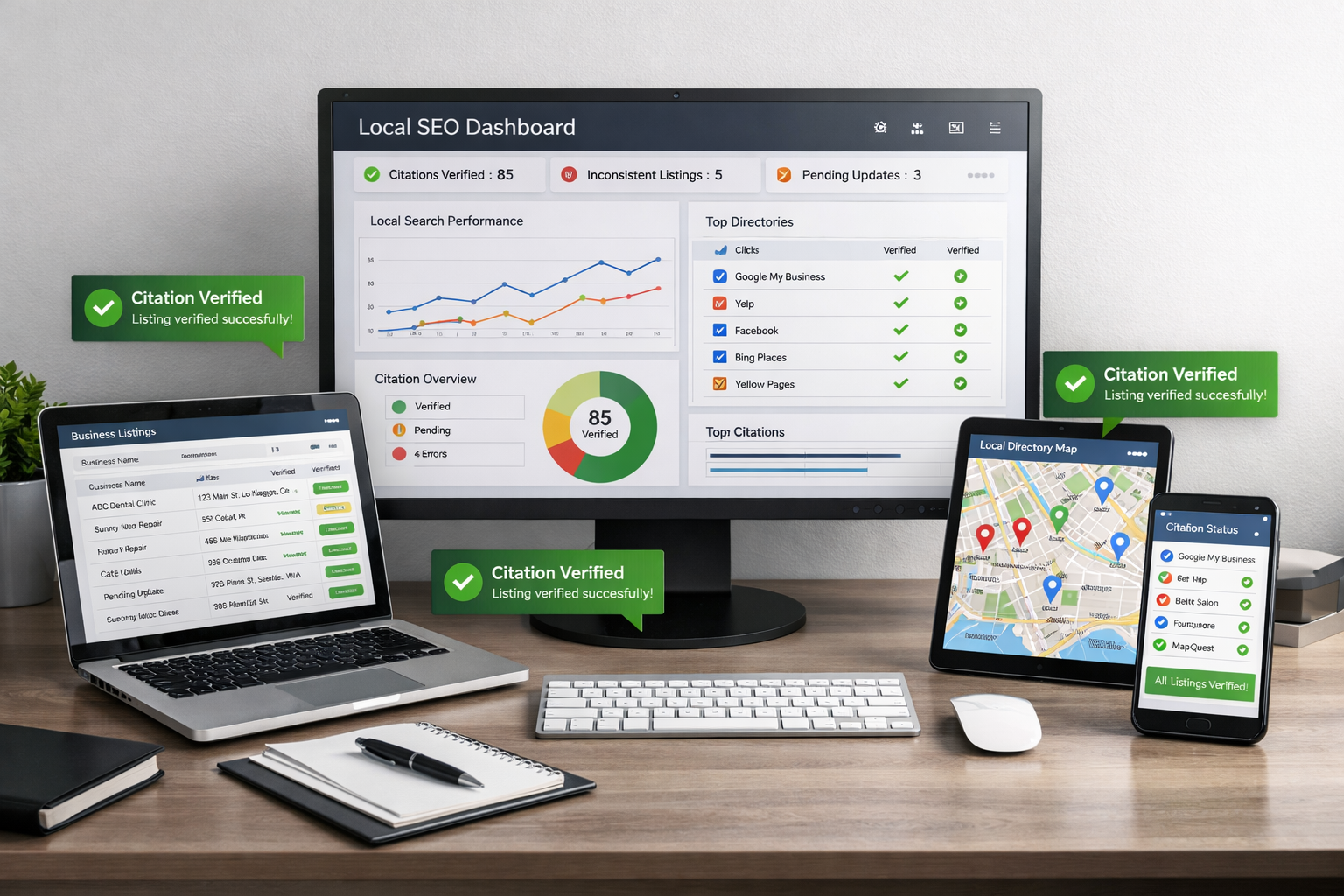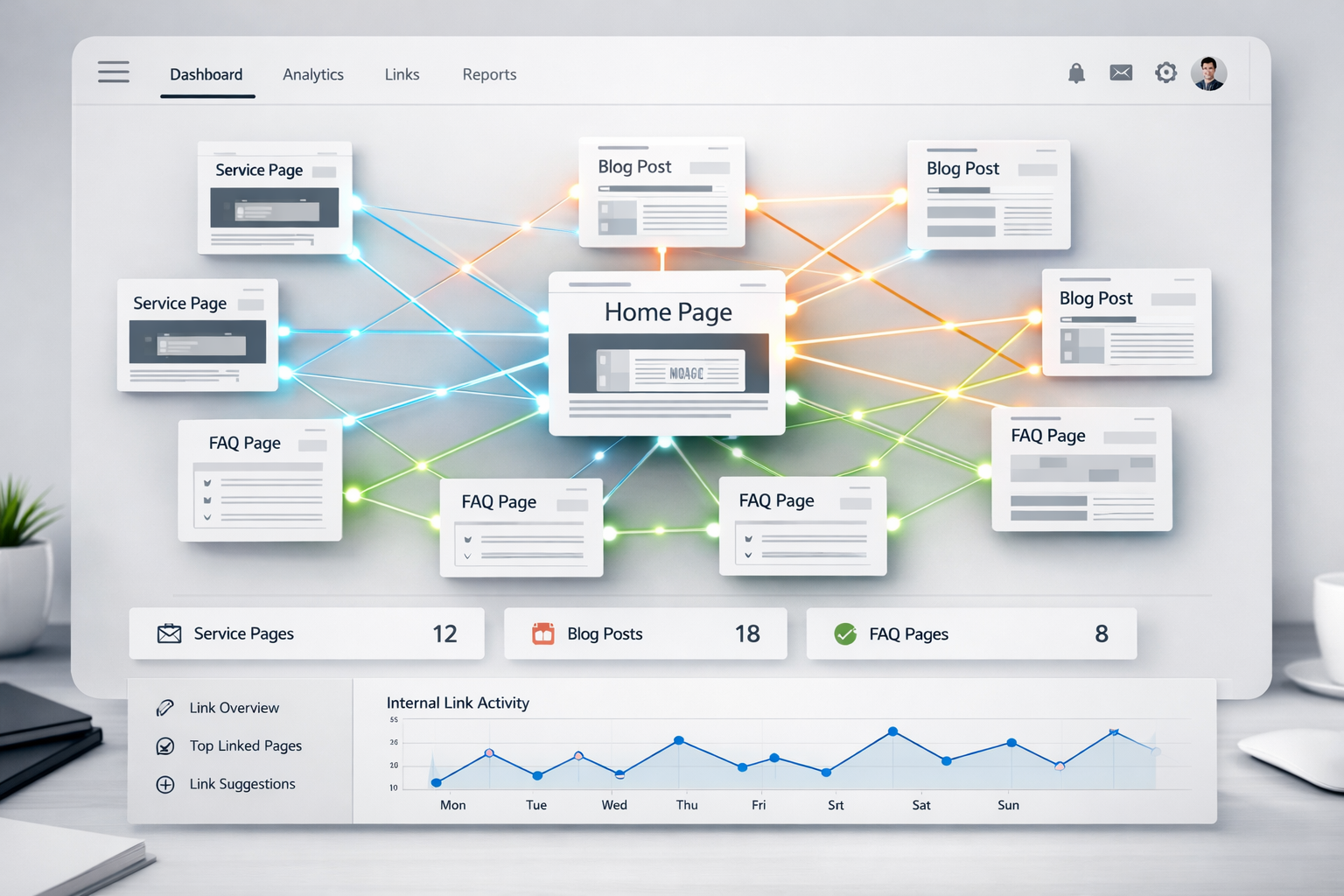How can I track SEO performance efficiently?
Search engine optimization (SEO) isn’t just about building backlinks, creating keyword-rich content, or tweaking technical elements. It’s a long-term growth strategy aimed at improving visibility, driving high-quality traffic, and generating leads. Businesses invest significant time and money into SEO campaigns, but without clear performance tracking, it becomes nearly impossible to know whether those efforts are paying off.
Efficient SEO tracking ensures that your time and resources are being used wisely. Not only does it allow you to measure ROI, but it also gives you valuable insights into what’s working and what needs refining. From keyword rankings to conversion data, from technical audits to competitor analysis, SEO tracking provides a panoramic view of your progress.
In this guide, we’ll explore 10 key areas of SEO performance tracking, how to measure them, and how a dedicated strategy can transform your digital marketing results. At GetPhound, we specialize in results-driven SEO. By combining advanced tools, proven frameworks like our RankGuarantee™ SEO, and new strategies like Generative Engine Optimization (GEO), we help businesses grow faster while keeping performance measurable and transparent. Now, let’s dive into the essential ways you can track SEO performance efficiently.
Understanding Your SEO Goals and KPIs
Before diving into metrics and tools, you must clearly define your SEO goals. Not every business has the same objectives, and “success” can mean very different things. For some, rankings are paramount; for others, leads or conversions come first. By identifying key performance indicators (KPIs), you can track outcomes tied directly to your business growth.
Common SEO Goals Include:
- Increasing organic website traffic
- Improving keyword rankings (especially for money terms)
- Driving local leads (through Google Maps or GBP optimization)
- Boosting conversions (form fills, calls, e-commerce sales)
- Expanding brand reach through generative AI channels (ChatGPT, Gemini)
KPIs to Track:
- Organic sessions (Google Analytics reports)
- Keyword positions (Google Search Console, third-party tools)
- Click-through rate (CTR) from SERPs
- Bounce rate, pages per session, and time on site
- Leads from organic traffic (phone calls, form submissions, bookings)
- ROI calculation (revenue from SEO compared with spend)
At GetPhound, we help clients align KPIs with realistic, growth-driven outcomes. For example, with our RankGuarantee™ SEO plan, you don’t pay until we get you ranking on page one for 100+ keywords—making KPIs very clear and easy to measure.
Pro Tip: Write down 3 primary SEO objectives (traffic, rankings, conversions) and track them weekly and monthly. This prevents data overload and ensures you’re focused on what matters most.
Keyword Rankings: Measuring Visibility and Growth
Keyword tracking is the cornerstone of SEO performance measurement. Every business must monitor where its target search terms are ranking, how they change over time, and whether they drive relevant traffic.
Key Strategies for Keyword Tracking:
- Track Core Keywords: Create a list of your top 20–50 keywords that directly tie into lead generation or sales.
- Monitor Secondary Keywords: Don’t ignore long-tail queries. They often drive higher conversions due to specificity.
- Segment by Intent: Break down keywords into informational, navigational, and transactional to understand where they fit in the customer journey.
- Local SEO Keywords: Include “near me” and city-specific terms if you want to boost visibility with Map SEO.
Tools for Tracking Keywords:
- Google Search Console (free but limited in rankings granularity)
- SEMrush, Ahrefs, or Moz (paid tools for ongoing monitoring)
- Local rank trackers for city-specific positioning
- GetPhound’s internal tracking system (customized reporting with visibility indexing)
Why Rankings Matter: Rankings show visibility—which leads to impressions, which lead to clicks, which can then become conversions. They’re the starting point of the funnel, making them indispensable for SEO tracking.
Efficient Tracking Tip: Automate rank tracking with reporting tools that send weekly updates. That way, you see trends over time without spending hours pulling reports manually.
Organic Traffic: The Lifeblood Metric of SEO
Rankings are important, but traffic tells you if those rankings are translating into real users. Efficient SEO tracking requires ongoing monitoring of organic sessions via Google Analytics (GA4).
Key Metrics to Measure:
- Sessions vs. Users: Sessions count visits, while users track unique people. Both are necessary to understand reach.
- Traffic by Landing Page: See which specific pages are drawing visitors and optimize them further.
- Branded vs. Non-Branded Queries: Branded searches show existing awareness, non-branded illustrate net new growth.
- Traffic Source Segmentation: Differentiate between organic search vs. direct or referral.
Why This Matters:
At GetPhound, we often see businesses celebrating higher keyword rankings but discovering stagnant traffic. This reveals a mismatch: they’re ranking for terms with little to no search volume. That’s why organic traffic validation matters.
Efficient Tracking Tip: Don’t just track overall traffic; drill down into the quality of traffic by examining bounce rates, conversions, and time on page. 500 visitors who never engage help less than 100 visitors who convert.
Conversion Tracking: Measuring SEO’s True ROI
SEO’s real purpose isn’t just visibility—it’s to generate leads and revenue. Conversion tracking ensures you’re not only monitoring traffic but also measuring business outcomes.
Types of Conversions to Track:
- Form submissions (via website forms, lead magnets)
- Phone calls (tracked with dynamic call tracking tools)
- Online bookings/reservations
- E-commerce purchases
- Newsletter signups
Tools for Conversion Tracking:
- GA4 goals & events setup
- CallRail or other call-tracking software
- HubSpot or Salesforce (CRM integration with SEO campaigns)
- GetPhound’s custom reporting (maps campaign conversions to organic activity)
Efficiency Benefit:
A well-set-up conversion funnel allows you to track from search click → web visit → lead → closed sale. This means you can prove SEO ROI to leadership or stakeholders.
At GetPhound, we highlight ROI by using tools that connect organic campaigns with leads. Our Google Ads + SEO integration often shows how top-of-funnel organic visibility feeds into PPC retargeting campaigns, compounding growth.
User Engagement Metrics: Beyond Clicks
Users aren’t just numbers—they’re people interacting with your website. Once traffic arrives, efficient SEO tracking digs deeper into behavior.
Key Engagement Metrics:
- Bounce Rate: Percentage of users leaving after one page load.
- Time on Page: Demonstrates content’s usefulness.
- Pages per Session: Indicates depth of interest.
- Scroll Depth & Click Maps: Show exactly how much of your content is being consumed.
These insights help refine content strategy. For example, if “plumbing repair in Phoenix” keywords are driving traffic but bounce rate is 80%, it may indicate low content quality or mismatch in search intent.
Efficient Tracking Tip: Use tools like Hotjar or Microsoft Clarity to see visual heatmaps of user interactions. Combine this with standard analytics to understand user needs holistically.
Technical SEO Health: The Foundation of Efficiency
Great rankings rely on technical soundness. Efficient performance tracking must include ongoing site audits.
What to Audit Regularly:
- Page speed (critical for conversions and rankings)
- Mobile responsiveness
- Crawlability and indexability (check Google Search Console errors)
- Duplicate content or thin pages
- Schema markup (critical for GEO SEO + AI-driven search engines)
- Broken links and redirects
Tools:
- Screaming Frog SEO Spider
- SEMrush site audit
- Google Lighthouse reports
At GetPhound, we emphasize technical health because even great keyword strategies suffer without it. Our LLM code installation (part of our GEO service) ensures websites are structured for generative AI platforms, which demand advanced markup and contextual alignment.
Efficiency Tip: Automate monthly audits and receive alerts when critical technical issues arise.
Competitor Analysis: Benchmarking Success
SEO doesn’t exist in a vacuum. Tracking performance efficiently requires comparing against competitors.
Key Elements of Competitive Tracking:
- SERP overlap: Who else is ranking for your keywords?
- Backlink strength: How many domains are linking to your competitor vs. you?
- Content volume and quality: Are they publishing more frequently?
- Local pack visibility: Are they ranking better on Maps in your city?
Competitor analysis reveals opportunities. For example, if they have a strong Google Business Profile and 200 reviews, while you have 20, your next move should be review generation campaigns plus Map SEO boosts.
Efficient Tracking Tip: Use SEMrush’s “Position Tracking” reports to set your competitors as benchmarks. This will automatically generate reports showing when you gain or lose ground relative to them.
Local SEO Tracking: Showing Up on Maps
For many businesses, especially home services, retail, or healthcare, local SEO performance is essential. Tracking local search efficiently requires focusing on Map Pack and GBP data.
Metrics to Measure in Local SEO:
- Visibility in top 3 Google Map results
- Calls and direction requests from your GBP
- Click-through rate to website from business listing
- Customer reviews (volume and sentiment)
Tracking Tools:
- Google Business Profile Insights
- Whitespark or BrightLocal for local ranking reports
- Call tracking attributed to GBP clicks
At GetPhound, we integrate Map SEO to make clients dominant in local search. These results often materialize quickly—sometimes in weeks—compared to broader organic campaigns.
Efficiency Tip: Automate weekly local visibility reports, but focus on month-over-month progress since local rankings fluctuate daily.
Content Performance Tracking: From Blog to Conversions
Content fuels SEO growth, but not all content performs equally. Efficient tracking requires analyzing content at the page level.
Key Content Metrics to Track:
- Organic traffic per blog post/landing page
- Time on page & scroll depth (engagement)
- Conversions per page (e.g., form fills or calls)
- Backlinks earned (which fuel domain authority growth)
Why This Matters:
If your blog is attracting visitors but not converting them, you need CTAs, form integrations, or stronger keyword targeting. Conversely, a post driving conversions should be replicated in structure and amplified.
At GetPhound, our Silver and Gold SEO Plans focus on content marketing + RankGuarantee™. That means not only getting ranked but ensuring content brings leads.
Efficiency Tip: Track page performance monthly and re-optimize underperforming posts rather than churning out endless new ones.
Emerging SEO Channels: Generative AI & GEO Tracking
The SEO world is evolving. With tools like ChatGPT, Gemini, and Perplexity influencing search, websites must also track Generative Engine Optimization (GEO).
Key GEO Tracking Elements:
- Business listing accuracy across directories
- AI-driven recommendations (testing prompts to see brand mentions)
- Schema markup success
- LLM integration tracking (ensuring sites are “understood” by generative engines)
GetPhound is a pioneer in GEO SEO, offering hyper-local semantic content and schema implementations to ensure clients appear in AI-generated search responses. This is the next wave—and tracking it efficiently now will put your business ahead of competitors.
Efficiency Tip: Run quarterly AI queries in ChatGPT/Gemini around your service area and track whether your business shows up as recommended. Track this alongside traditional keyword rankings.
Conclusion: Turning Tracking Into Growth
Tracking SEO performance efficiently isn’t just about collecting endless data points—it’s about measuring the metrics that truly matter and tying them back to business growth. From keyword rankings to GEO optimization, from conversions to competitor insights, the goal is clarity and action.
At GetPhound, efficiency is our foundation. With strategies like RankGuarantee™ SEO (no payment until page-one rankings), Google Ads management, Map SEO, and GEO optimization, we make performance measurable, dependable, and growth-driven.
When done right, SEO tracking empowers businesses to:
- Prove ROI to stakeholders
- Make smarter marketing decisions
- Identify and fix weaknesses fast
- Stay competitive in both search engines and AI recommendations
Ultimately, SEO tracking isn’t an expense—it’s an investment in accountability, visibility, and scalable growth.











